In a departure from its previous model, Google’s Pixel 8 Pro is now available in India with an expanded storage variant, addressing long-standing concerns about limited storage capacity. The introduction of a new 256GB variant aims to provide users with more storage options, catering to the demand for increased internal storage. Priced at Rs 1,13,999, the 256GB variant is a higher-end choice than the base 128GB model priced at Rs. 1,06,999. However, the substantial price tag prompts questions about the Pixel 8 Pro’s affordability for a wider audience and whether it is worth buying. Let’s answer those questions in our Review of Pixel 8 Pro.
Design and Display: A Familiar Yet Refined Aesthetic
The Pixel 8 Pro maintains a design reminiscent of its predecessors, featuring a distinctive camera bar across the back. Notable changes include a frosted glass rear panel, offering a softer feel and reduced fingerprint visibility. While the design is not a radical departure from the previous model, subtle refinements contribute to an enhanced user experience. Also, the phone is quite slippery, and as a matter of fact, it even slipped out of our hands a couple of times during the review process. We recommend using a case to improve the grip and reduce the likelihood of dropping it.
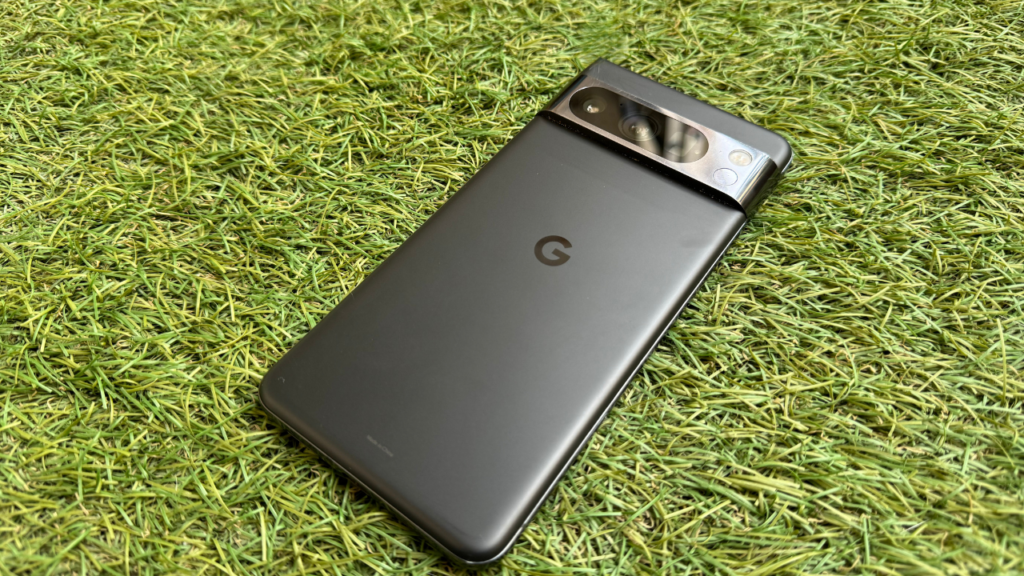
The Pixel 8 Pro has a 6.7-inch QHD+ OLED display that performs well even under bright sunlight. The Natural colour mode displays relatively accurate colours. Its dynamic Refresh Rate of 120Hz works seamlessly and reduces to 1Hz when unused.
Tensor G3 Processor: Does it have limitations?
The Pixel 8 Pro is equipped with Google’s latest Tensor G3 Processor paired with 12 GB RAM, which gives it midrange performance. In general, the phone operates smoothly for day-to-day use and multitasking. However, one of the main downsides of the processor is that it still needs to figure out a way to handle all the processing that happens after taking a photo.
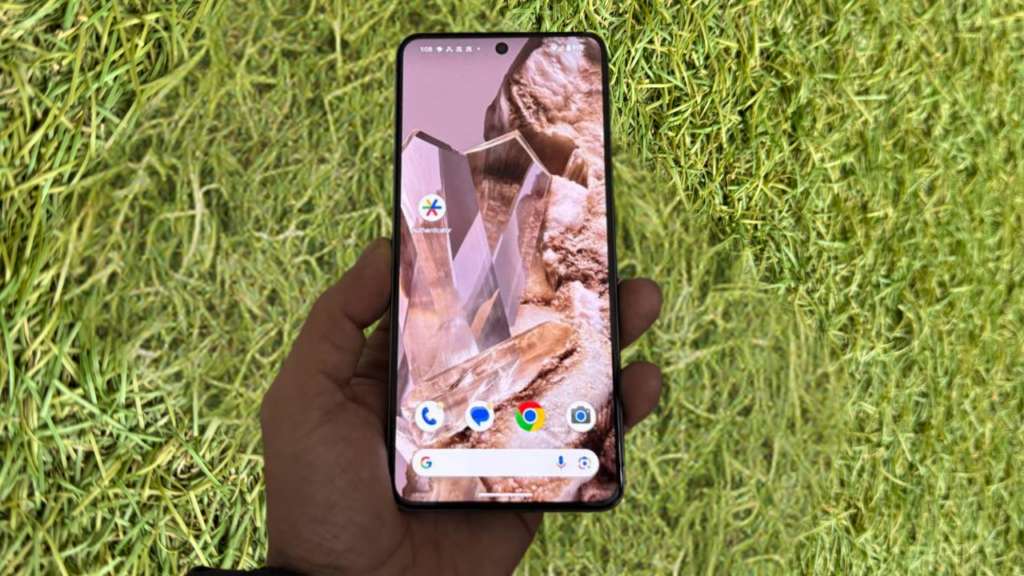
Let me explain: just like the Pixel 7 Pro, the Pixel 8 Pro struggles when taking Portrait mode photos. After taking around 7-8 portrait mode photos in quick succession, the photo buffer becomes full, and the camera will stop capturing photos (or turn off the shutter button) until it finishes processing the images in the background. Once the processing is complete, the camera will allow you to take more photos.
Sadly, the latest Tensor G3 SoC can’t handle basic tasks for a phone known for photography.
On the Pixel 8 Pro, most casual and high-end games run just fine at default settings. But the phone isn’t as powerful compared to its Qualcomm Snapdragon-powered counterparts, so don’t expect flawless frame rates when playing graphics-intensive titles like Call of Duty: Mobile.
The phone does warm up during extensive gaming and photography sessions but does not get abnormally hot, mainly due to CPU throttling.
The new Face Unlock feature on Pixel 8 Pro is secure and quick but only works well in good lighting. In dimly lit settings, the camera may struggle to recognise faces. I had to use the fingerprint scanner instead, which worked as expected.
New Feature – Temperature Sensor: Practicality in Question
A distinctive addition to the Pixel 8 Pro is the temperature sensor located on the back. Designed to measure object surface temperatures, the practicality of this feature raises doubts in our minds. While functional in specific scenarios, questions arise regarding its necessity and real-world applications, considering the availability of alternative devices and methods for temperature measurement.
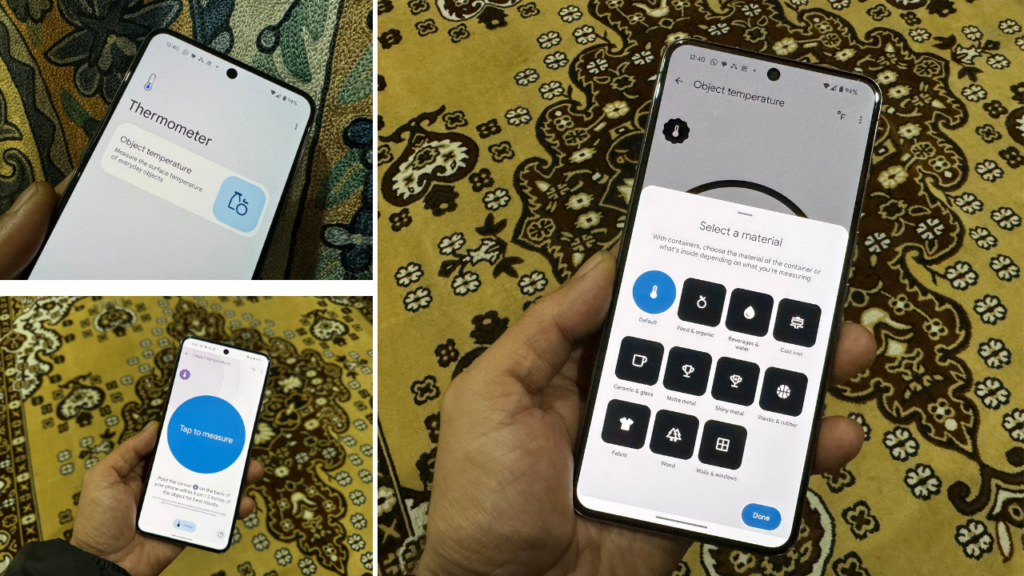
Android 14 and AI Features: A Commitment to Long-Term Software Support
Google has announced it will provide software support for its Pixel 8 Pro smartphone for seven years. This is longer than any other smartphone manufacturer, including Apple and Samsung. The phone will receive major operating system updates and security patches during this period. Additionally, Google has said that it will ensure the availability of spare parts for the Pixel 8 Pro for the seven-year support period.
If we talk about Android 14’s overall look and UI design, it remains unchanged as compared to Android 13, except for some minor changes. However, it’s important to note that apps developed for Android 5.1 Lollipop or older will not be compatible with Android 14 as Google focuses on user experience and security aspects.
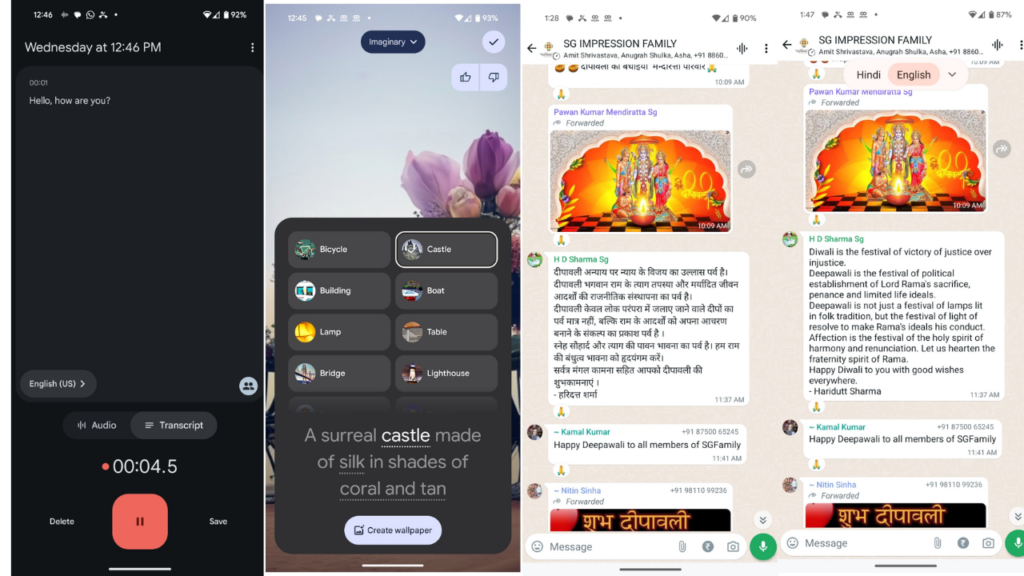
In terms of additions, the lock screen now offers more customisation options, including the ability to create unique wallpapers. Another interesting addition to Android 14 compared to Android 13 is that earlier, sharing images meant allowing access to your entire gallery. Android 14 allows you to share access to only select images, providing an extra layer of security.
The most noticeable update in the updated NPU allows real-time translation. Live Translate works for written text in most apps and languages and has an Interpreter mode. It can translate live conversations between two people speaking supported languages, and transcriptions can be translated into more languages. Language support is currently limited due to the AI algorithm’s resource-intensive nature.
On the other hand, when it comes to messaging, the translation process is quite simple. If you receive a text message in a different language, the system automatically detects it and offers a translation.
One of the AI-based features of this phone is the ability to transcribe a real-life conversation with speaker labels. This function is built into the audio recorder app. It is particularly effective for English speakers and useful for people who frequently make voice memos.
Even Google Photos has now integrated a new AI algorithm called Magic Editor. Unlike the basic object eraser or background blur features, the Magic Editor is an advanced tool that allows users to remove non-human objects, manipulate positions, change the sky, and more. Users can easily customise their edits with three preset variants and the option to generate more. Moreover, the Magic Editor also allows users to remove background noise from videos, proving useful in specific scenarios. It can be accessed from the Edit menu in Google Photos.

Audio Magic Eraser: Eliminating Background Noise in Videos
The Pixel 8 Pro has introduced the Audio Magic Eraser feature, designed to mitigate or eliminate background noise in recorded videos. It is quite a useful feature and works smoothly in most scenarios.
Battery Performance: Incremental Improvement
Pixel 8 Pro is powered by a 5,050mAh battery, and just like its predecessor, the battery output can be labelled as decent only. In Real-world usage, one can expect around 8 hours of backup on medium usage, including using AI tools and gaming.
The Pixel 8 Pro has 30W wired charging and supports up to 23W wireless charging.
Camera System: Incremental Upgrades for Enhanced Photography
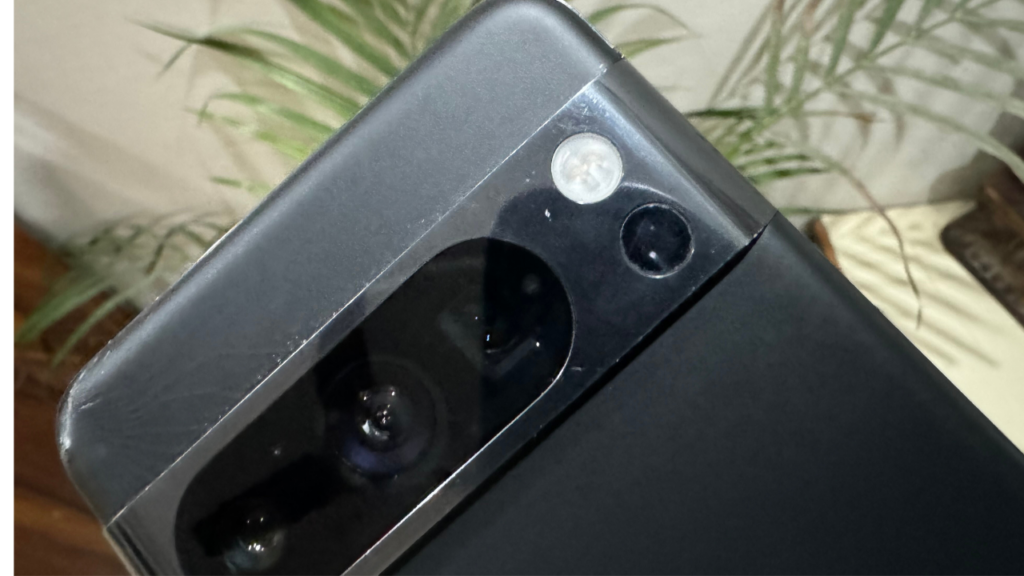
The Pixel 8 Pro will have a triple rear camera setup for optics. It consists of a 48-megapixel f/3.5 telephoto camera with 5x Optical Zoom support, a 50-megapixel f/1.85 Wide-Angle primary camera, and a 48-megapixel f/2.2 ultra-wide angle camera. Additionally, it features a 10.5-megapixel camera on the front for capturing selfies and video chats quipped with autofocus, distinguishing it from the fixed focus on the Pixel 8.

The camera modes receive an overhaul, introducing a special pro mode named Pro Controls on the Pixel 8 Pro. This mode caters to smartphone camera enthusiasts, providing advanced controls for tweaking settings before or during capture. It’s essential to clarify that the Pixel 8 Pro’s Pro Controls mode is less refined than the Samsung Galaxy S23 Ultra’s camera app, which offers more controls for video.
From a software perspective, the Pixel phones showcase exciting updates. The new camera App places the settings pane at the bottom, accessible by swiping up instead of down. The app is divided into dedicated photo and video modes, each with its sub-modes. It has been implemented quite well.
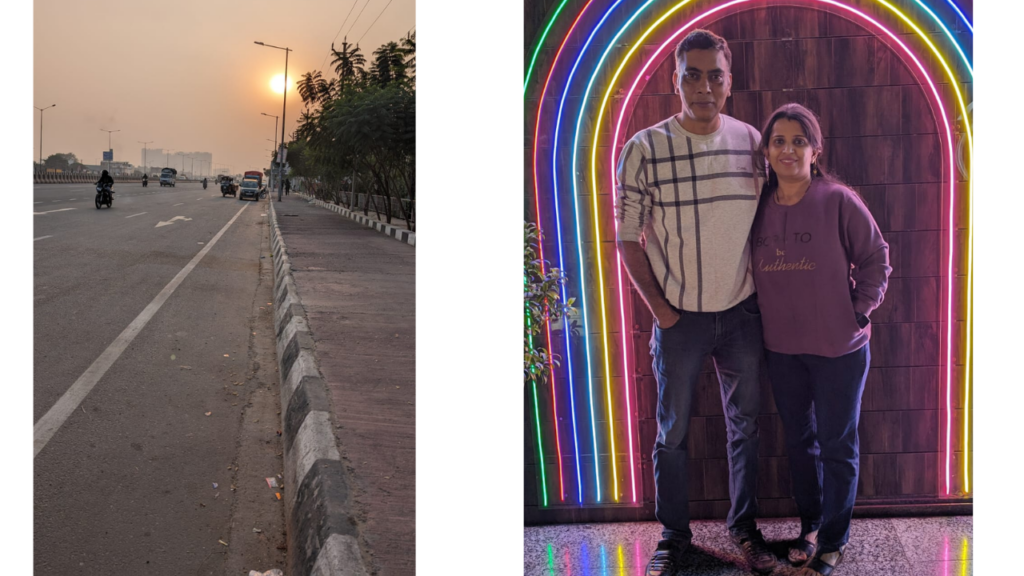
In terms of daylight photo quality, the Pixel 8 Pro’s primary camera produces excellent photos with pleasing detail and minimal noise. The telephoto delivers sharp images with great detail and vibrant colours. The ultra-wide camera has undergone significant changes this year. Photos taken with this camera in daylight offer more detail and dynamic range, with accurate colours. The macro images are also impressive, as the new camera allows you to get closer to your subject.

In low-light conditions, the Pixel 8 Pro impresses with balanced exposure and well-preserved highlights in Night mode. Portrait mode, available at 1.5x and 2x zoom levels, maintains good detail and acceptable results, though imperfections may be visible in subject detection.

Video recording capabilities of the Pixel 8 Pro include 4K60 recording with all four cameras, along with 24fps and 30fps modes. Stabilisation is available in all modes, and the primary camera captures high-quality videos with ample detail.
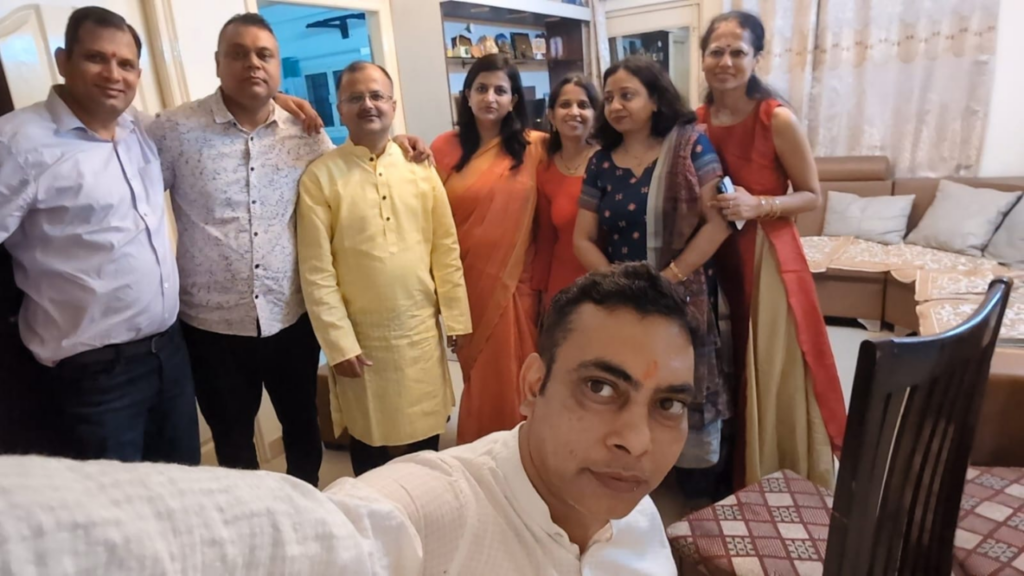
The Pixel 8 Pro captures great selfies with accurate colour reproduction and impressive portrait mode.

